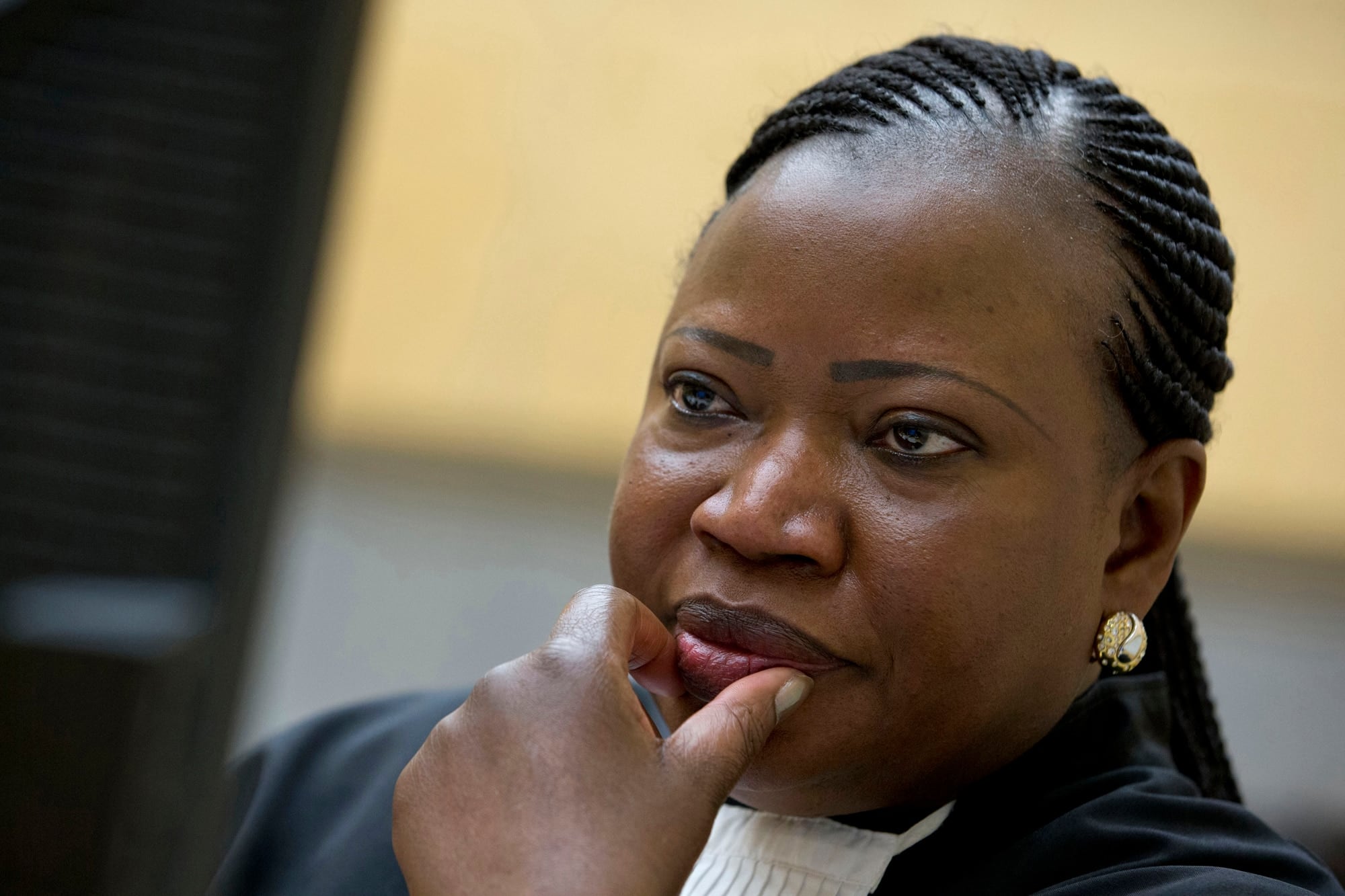THE HAGUE, Netherlands — The chances of American servicemen being charged and sent to face justice at the International Criminal Court are remote, even if the chief prosecutor opens an investigation into alleged crimes in Afghanistan, legal experts said Tuesday.
Stephen Rapp, a former ambassador at large for war crimes issues in the Obama administration told The Associated Press he considers it "highly, highly unlikely" an American will be prosecuted at the world's first international court with global reach, based in The Hague, Netherlands.
Rapp's comments came a day after the ICC's chief prosecutor said in a report that U.S. forces in Afghanistan may have committed the war crime of torture when interrogating detainees, opening the possibility of Americans being prosecuted even though their country is not a member of the court.
"Members of US armed forces appear to have subjected at least 61 detained persons to torture, cruel treatment, outrages upon personal dignity on the territory of Afghanistan between 1 May 2003 and 31 December 2014," according to the report issued late Monday by Prosecutor Fatou Bensouda's office. Bensouda didn't comment on the report Tuesday.
The report added that CIA operatives may have subjected at least 27 detainees in Afghanistan, Poland, Romania and Lithuania to "torture, cruel treatment, outrages upon personal dignity and/or rape" between December 2002 and March 2008.
Prosecutors said they will decide "imminently" whether to seek authorization to open a full-scale investigation in Afghanistan that could lead to war crimes charges.
The report also highlighted that Afghan military, security and police forces likely committed war crimes by mistreating detainees, and that the Taliban killed thousands of civilians and committed many other atrocities.
A key hurdle that ICC prosecutors would have to cross if they target Americans for investigation is a legal doctrine known as complementarity.

Prosecutor Fatou Bensouda waits for the start of the trial at the International Criminal Court (ICC) in The Hague, Netherlands, on Nov. 27, 2013.
Photo Credit: Peter Dejong/AP
The ICC is a court of last resort that steps in to take cases that nations are unwilling or unable to prosecute. That means that if American authorities have conducted serious investigations, the complementarity doctrine would block ICC jurisdiction.
"The U.S. can prevent ICC prosecutions by undertaking a good-faith investigation and prosecution in its own military or civilian courts," said Prof. Michael Scharf, dean of the Case Western Reserve University School of Law.
The ICC report acknowledged that U.S. authorities have conducted dozens of investigations and court-martial cases and says ICC prosecutors are seeking further clarifications on their scope before deciding whether any American cases would be admissible at the ICC.
"The ICC would have to conclude that these have been incomplete and insufficient before it can commence formal proceedings," Scharf said.
In a reaction Monday, State Department spokeswoman Elizabeth Trudeau said the U.S. doesn't believe an ICC investigation is "warranted or appropriate."
"The United States is deeply committed to complying with the law of war, and we have a robust national system of investigation and accountability that more than meets international standards," Trudeau said.
ICC prosecutors also say investigations are reportedly underway in Poland, Romania and Lithuania — all signatories to the Rome Statute — into possible crimes at CIA detention facilities in those countries.
Rapp said that based on the large number of investigations and other probes in the U.S., "there is, I think, a strong argument to be made that there was sufficient process."
Rapp, who left the State Department last year and is now a distinguished fellow at The Hague Institute for Global Justice think tank, said that even if judges do authorize an investigation, its early focus would likely be on Taliban crimes, which are far more widespread and deadly.
Scharf, meanwhile, said that another potential barrier is the relatively small number of victims of the alleged U.S. torture.
"The ICC's jurisdiction is limited to widespread and systematic acts of torture and other crimes against humanity," he said. "As an international court, the ICC is designed to focus only on the greatest cases of atrocity in the world."
Established in 2002, the International Criminal Court is the world's first permanent court set up to prosecute war crimes, crimes against humanity and genocide. More than 120 countries around the world are members, but superpowers including the United States, Russia and China have not signed up.
Former U.S. President Bill Clinton signed the Rome treaty that established the court on Dec. 31, 2000, but President George W. Bush renounced the signature, citing fears that Americans would be unfairly prosecuted for political reasons.
Even though the United States is not a member of the court, Americans could still face prosecution at its headquarters in The Hague if they commit crimes within its jurisdiction in a country that is a member, such as Afghanistan, and are not prosecuted at home.
Param-Preet Singh, associate international justice director at Human Rights Watch, welcomed the possibility of the court delivering justice to a troubled nation where it is rare.
"The ICC prosecutor's report highlights some of the worst abuses committed by government forces and the Taliban in Afghanistan, where impunity remains the norm," she said. "The link to possible war crimes by the Central Intelligence Agency and the U.S. military shows that the ICC is prepared to investigate cases involving those who may otherwise seem beyond the reach of justice."
AP Diplomatic Writer Matthew Lee and AP National Security Writer Robert Burns in Washington contributed to this report.





